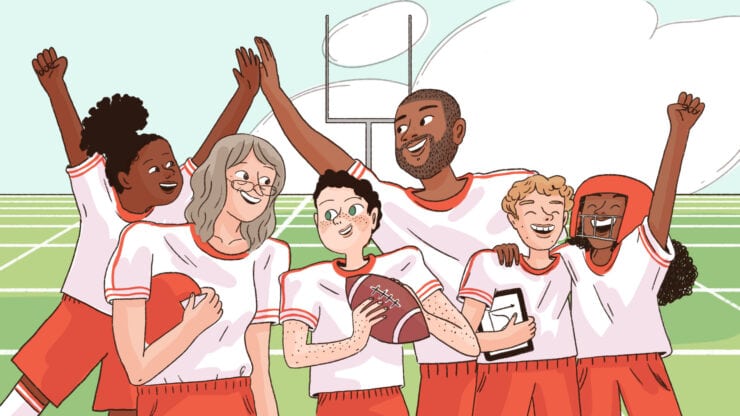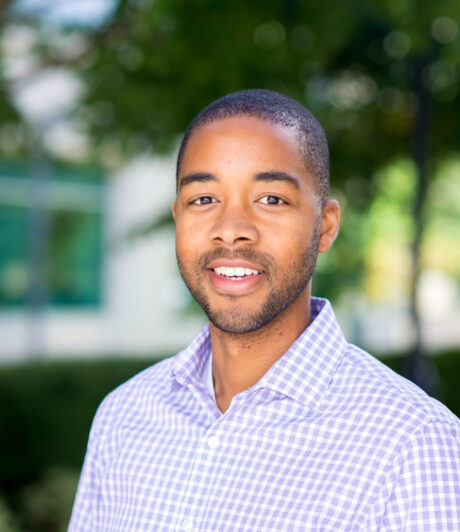The learning scientist using new tools to understand learning in sports
Marcelo Worsley uses data science to foster engagement in learning

Marcelo Worsley researches the design of meaningful learning environments. He is developing technological tools for learning and assessment in sports. Annie Brookman-Byrne finds out more.
Annie Brookman-Byrne: How are you using data science to foster deeper engagement in learning?
Marcelo Worsley: I connect learning experiences to students’ interests and identities. This involves creating new learning activities and curricula, as well as developing technological tools to support learning and assessment. At present I am working to bring computer science and data science into sports. I work with coaches and teachers to integrate data science and computer science into their day-to-day interactions with youth.
“I connect learning experiences to students’ interests and identities.”
For example, I recently worked with some American-football players who wanted to find out whether changing their tackling technique could decrease the amount of force applied to their heads. They embedded wearable devices in their helmets and collected data while using various tackling techniques during practice sessions. After adjusting their technique, they saw a noticeable decrease in the forces applied to their heads while tackling. My team and I have also worked with coaches, providing them with additional data that can help track player progress or quantify various performance metrics.
ABB: What drew you to this field?
MW: I was intrigued by the potential to have a positive impact on individuals and communities. I also noticed a lack of innovation in how we design technology, learning experiences, and novel assessments. I want every learner to have access to experiences that help them feel included and empowered.
“I want every learner to have access to experiences that help them feel included and empowered.”
ABB: How will your research help young people?
MW: My goal is to give people more tools to experience meaningful learning, and to show that learning can take new forms. My current project is designed to improve students’ learning in sports. Sports attracts people from all cultures and communities, and millions of people gather at sporting events every weekend to cheer on their favorite teams. Millions of teenagers and young adults also participate actively in some type of sport, and many adults look back on such experiences as a highlight of their adolescence. This shows the positive role that sports can play in young people’s lives, and the influential role that teammates, coaches, and supporters play in the lives of young athletes.
ABB: Has working in this field changed your views on learning?
MW: This work has helped me recognize the influential role that adults play in various contexts and the possibility of transforming learning by engaging youth around their interests. We have seen remarkable shifts in young people’s perceptions when an adult who is not immediately associated with athletics engages with or competes with students in a sports-related activity. During some of our learning activities, for example, teachers compete with youth. I’ll never forget how surprised one student was to be bested in a sporting activity by an adult he hadn’t previously regarded as athletic. The student subsequently thought very differently about that teacher.
“This work has helped me recognize the influential role that adults play in various contexts.”
Some of our activities have also caused young people to change their perceptions of adults they had previously regarded primarily in terms of athletic ability. Whereas some students had, in the past, limited their conversations with those teachers to sports, they began to talk with them about other topics as well, such as how certain technologies work. And adult participants in our programs have seen young people who were otherwise quiet and reserved come alive when offered a different way of participating – whether through sports or through the use of novel technologies. I have watched as students who had expressed apprehension and a lack of interest in computer science develop a passion for that subject after learning about opportunities to help shape the future of sports technology.
ABB: What are you pursuing next?
MW: I’m excited to bring my work to the world of club and high school athletics. What would it look like if every coach were trained to help players appreciate computer science and data science in ways that are relevant to sports?
Footnotes
Marcelo Worsley is the Karr Family Associate Professor of Computer Science and Learning Sciences at Northwestern University. His research integrates artificial intelligence and data mining with multimodal interfaces for the purpose of studying and supporting human learning. He directs the Technological Innovations for Inclusive Learning and Teaching (TIILT) lab, which works with community and industry partners around the world to empower people and organizations through the design and use of equity–focused learning tools. These tools include both pedagogical and technological solutions for in–school and out–of–school learning.
Marcelo on LinkedIn, Marcelo’s website.
This interview has been edited for clarity.
One comment
Comments are closed.


Fantastic. I graduated with a PhD in Reggio Childhood Studies, from Early Childhood to Lifelong Learning which looked at the essence of pedagogies which support the super-diverse child (similar identity to what Marcello expresses), so your conversation with him resonates strongly with my work. Thank you for this!